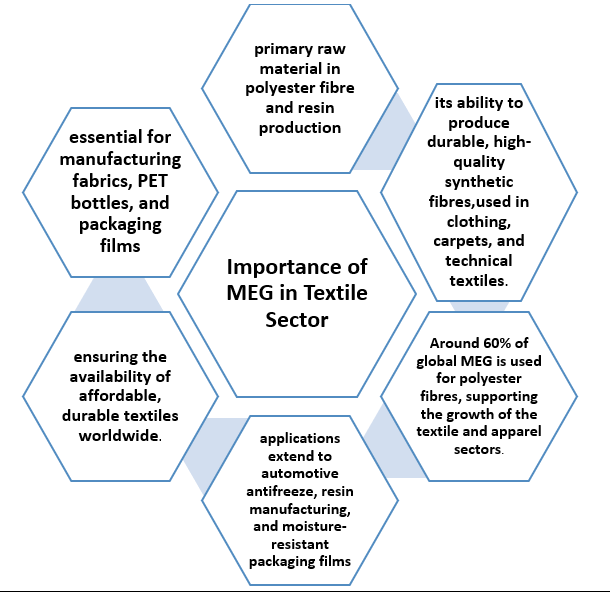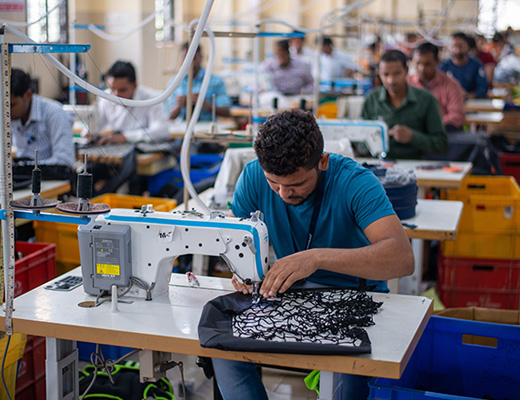Syllabus:
GS-3: Indian Economy and issues relating to planning, mobilization of resources, growth, development and employment.
Context:
An Anti-dumping Duty is a protective tariff imposed by a country’s government on imported goods that are priced below their fair domestic market value, a practice known as dumping. It is permited by WTO.
The Textile Industry has appealed to the government to not levy anti-dumping duty on Mono Ethylene Glycol (MEG) which is one of the main raw materials used in the production of polyester fibre and filament.
More on the News

- India’s annual requirement of MEG is 28 lakh tonnes, of which around 12 lakh tonnes are imported from Singapore, Qatar, and Saudi Arabia. Imports from China are restricted due to Quality Control Order regulations.
- The government removed Anti-Dumping Duty (ADD) on Purified Terephthalic Acid (PTA) in the 2020 Union Budget to ensure the availability of raw materials at international prices for the domestic MMF(manmade fiber) industry.
- Concerns raised by Textile Industries : proposed Anti-Dumping Duty (ADD) will raise MEG prices by 20%, increasing production costs for manmade fibre, yarn, filament, fabrics, and garments.
- The government recently cut GST on MMF yarn and fabrics to boost MMF textile production. However, imposing anti-dumping duty on MEG could hinder growth, as it would raise the cost of key raw materials for synthetic products.
- The duty may jeopardize planned investments worth ₹20,000 crore and threaten employment opportunities for approximately three lakh people linked to the MMF sector.
Sources:
The Hindu
Economic Times

